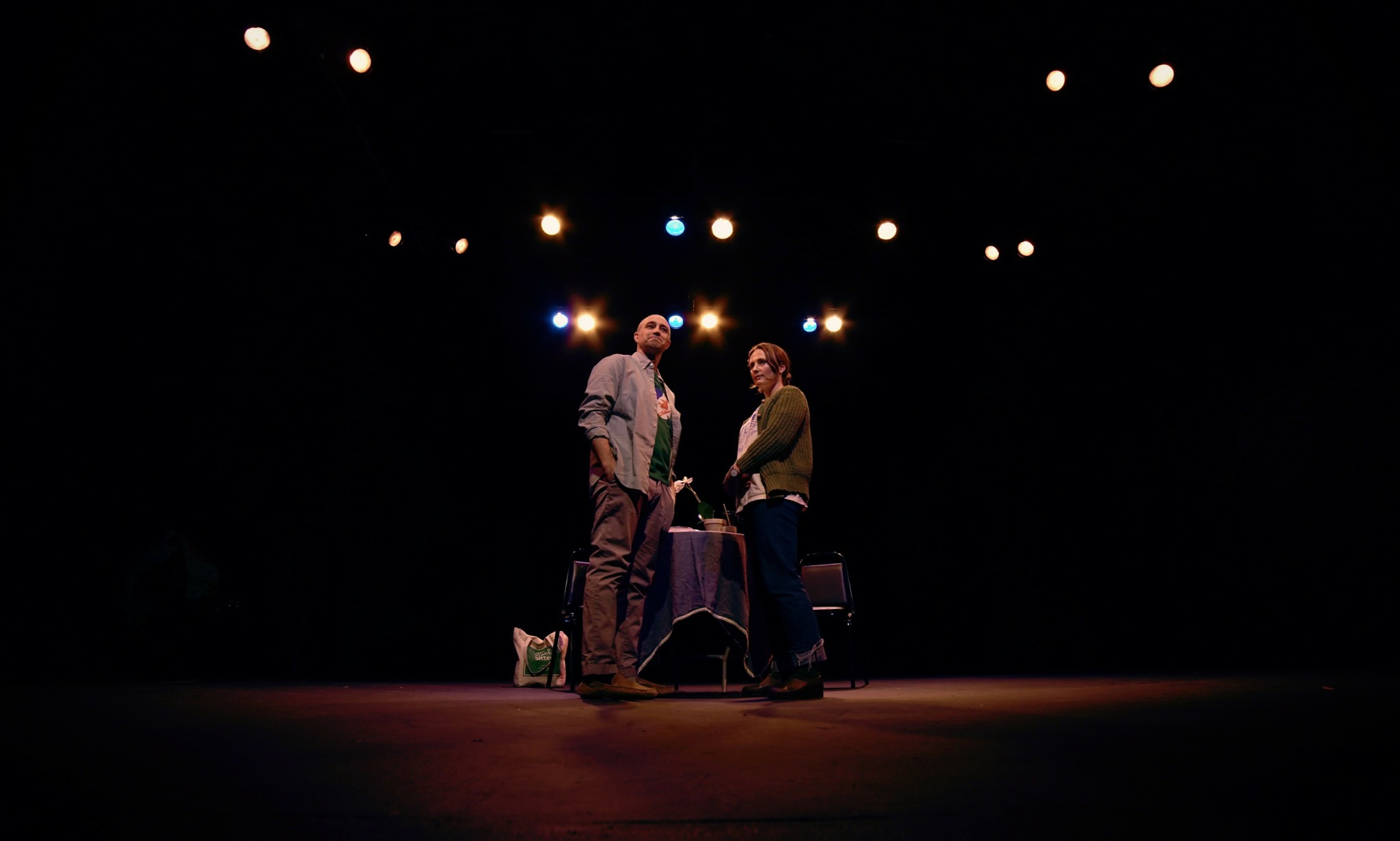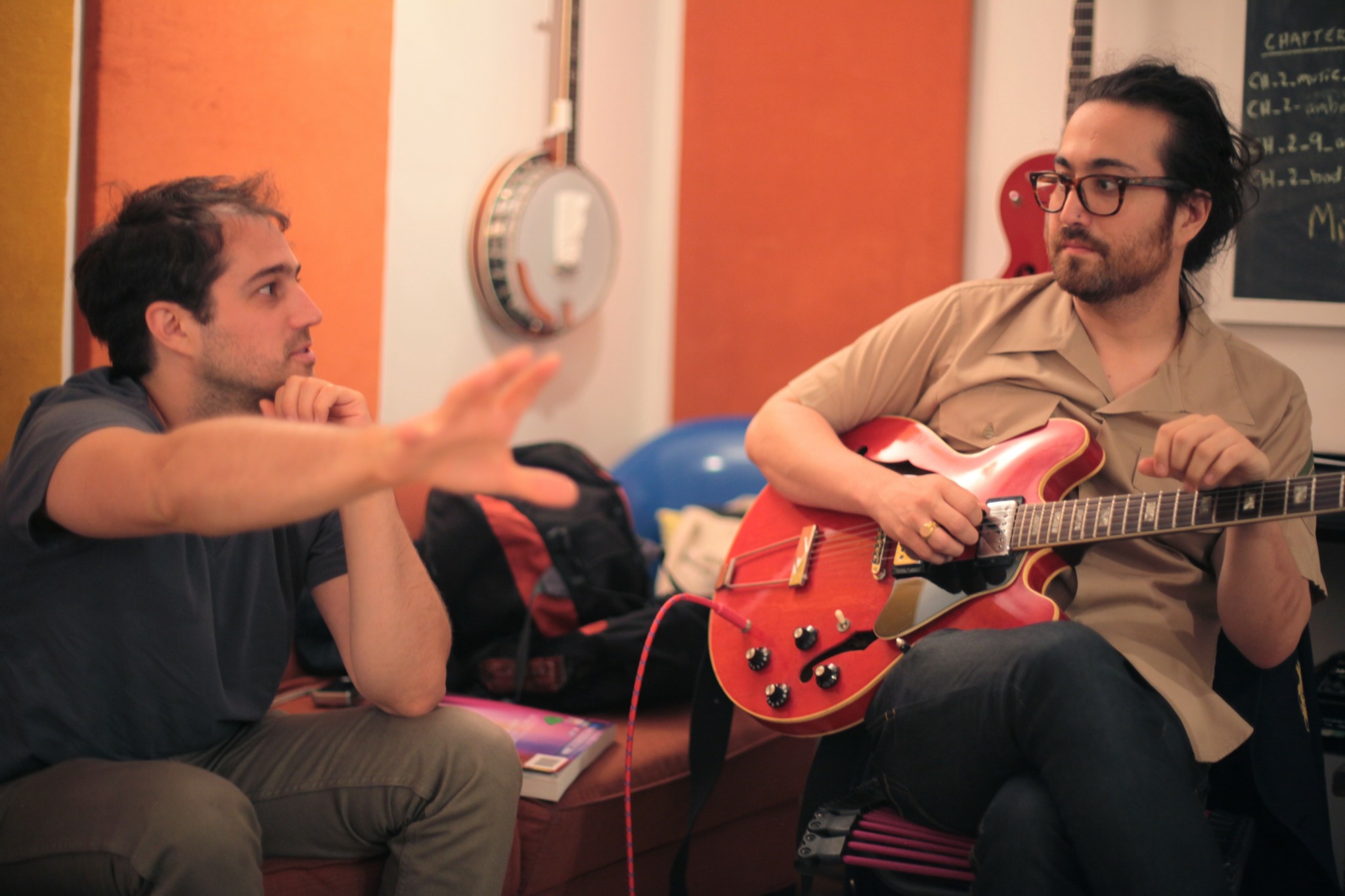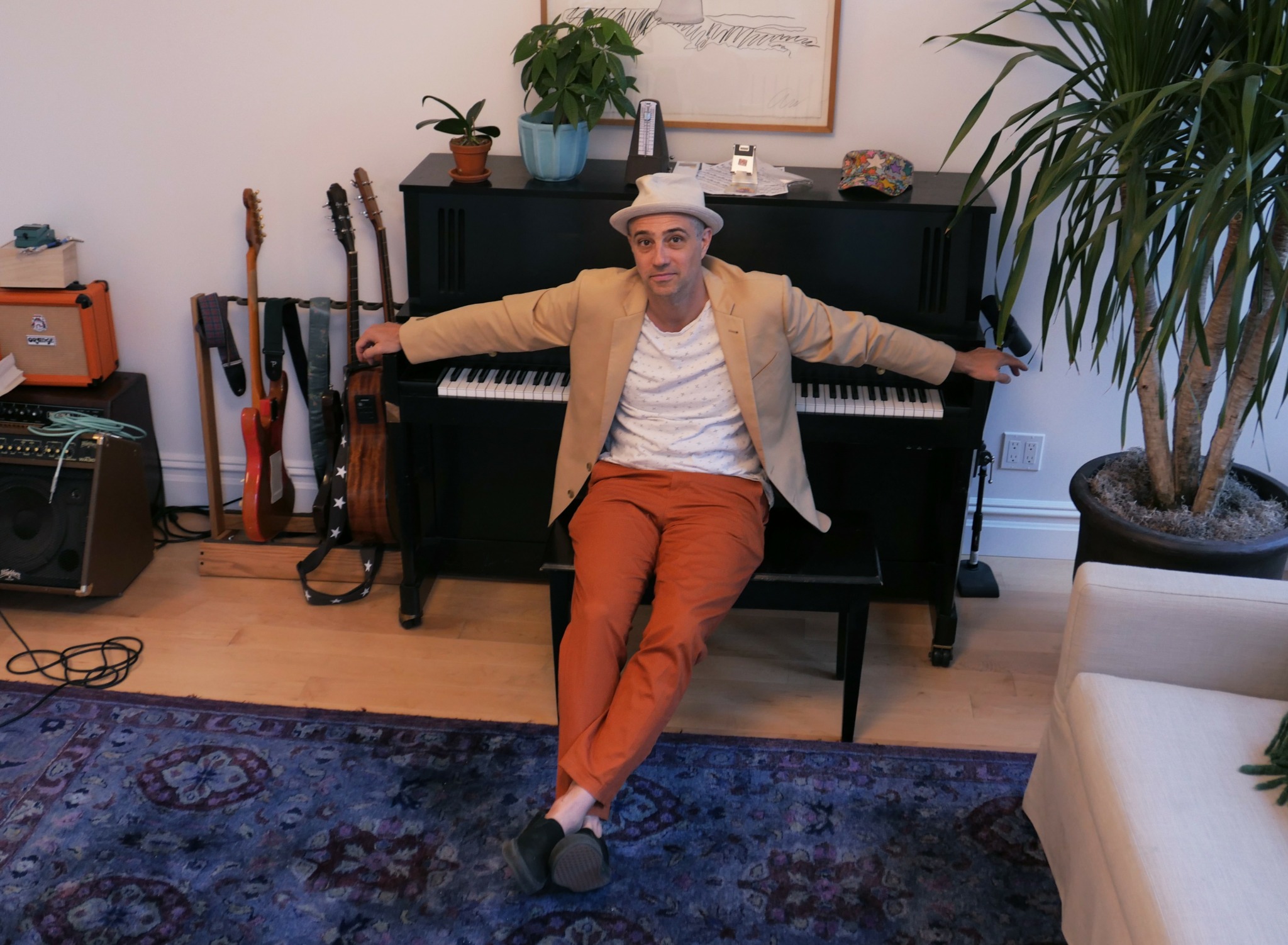Alright – so today we’ve got the honor of introducing you to Jordan Galland. We think you’ll enjoy our conversation, we’ve shared it below.
Jordan , appreciate you joining us today. Do you take vacations? Why or why not?
All throughout my twenties and thirties I never allowed myself to take a proper vacation. When I traveled somewhere during holidays, I’d either be writing scripts, editing films, mixing and doing sound design, researching camera equipment, or taking calls from my manager or a producer. I didn’t think I deserved a vacation. And if I wasn’t working I was bored. Then I became a dad, and we didn’t have a nanny or daycare, so my main concern was how I’d find time to juggle multiple projects as I was accustomed to. Inevitably it all grounded to halt, at first because of the arrival of our newborn, then because of the pandemic coinciding with a family member sustaining a serious injury. The universe was insisting I put business on hold. For the first time, I did not bury myself in a multitude of jobs. I had no creative endeavors. In the downtime between taking care of my new family, I experimented with something: allowing myself to be bored, and it felt strange. I soon realized what this uneasy, foreign feeling was: a vacation. When I finally returned to work, I was surprised to find I had a clearer measure of what was important and what was merely the noise of spinning wheels to feel busy. For the last six years, I no longer work during vacation. I allow my mind to wonder and daydream, enjoy time with my family, and I believe this balance has yielded the best work of my career, because it lends itself to that old phrase “quality over quantity.”

Great, appreciate you sharing that with us. Before we ask you to share more of your insights, can you take a moment to introduce yourself and how you got to where you are today to our readers.
I am a playwright, filmmaker, actor, photographer and musician. If I had to condense it into one thing, that might be “storyteller.” I’ve made four feature films that I wrote, directed, produced and edited, which were all shown in theaters, and translated into multiple language for international release. These were all genre films, about vampires or demons or superheroes. I’ve written several plays and acted in them off-broadway, that were not genre pieces, but more personal, centering on family and marriage. I’ve written songs for myself and other singers and music producers, releasing over two dozen albums worth of material for my bands and my solo work. I find that all these crafts and disciplines inform each other. I rotate them; as I wait for a film to come out, I’ll often move to music. As I’m waiting for a new album to be released, I’ll move to playwriting. While I’m performing music or plays, that’s when I’m writing my next movie or song. And any chance I get, I like to take long walks and take photographs at night. I picture these different lanes like spokes of a wheel, turning, keeping me moving forward. I am very harsh with myself about past failures. My mantra is “I’d rather make a new mistake than an old one.” So I explore new tactics, try new approaches, always refining or modifying the journey of making art, from conception, through completion. I do often go back to old ideas and notes from previous works that were never finished, to see if there’s something that can be used for a new project, but I never recycle something as a whole from a previous era. I have the sensation that once I’ve completed a new project, it has completely changed me. A script from a few years ago is no longer applicable to where I am now, and if I’m going to mine it for material, it will often be completely rewritten and distilled into something new. I can be plagued by the notion that I should be focusing on one art form only, perfecting one craft. I feel a tidal wave of self criticism making me doubt every ambition I have. That’s when the wheel stops turning and it takes deliberate effort to recenter myself, stop comparing what I do to others, and keep rolling forward. What I am most proud of is the way I cross-pollinate skills. My musical sensibility informs my timing as a film editor, which informs my sense of flow for script development, which gives me a sense of the overall picture when I’m performing one scene, or one song. When sharing this unusual process with collaborators and clients, who hire me to create content or refine the vision for their brand, direct a commercial or write a jingle, they often say our creative conversations deepen their feeling for the work, because of the multiple perspectives I can bring from my various experiences. My goal is bring soulfulness to every thing I make whether it’s a personal project or a commercial one.

Can you share a story from your journey that illustrates your resilience?
When my first film “Rosencrantz and Guildenstern are Undead” premiered at Slamdance, it was a very exciting time. It was buzzed about in the New York Times, on MTV, all the trade papers such as Variety and Hollywood Reporter. But then we had to find a distributor and once we found a distributor after the festival circuit, a long form deal needed to be negotiated, and after we did the deal, then they started the long process of releasing the film. So it was over two years before that movie was available to audiences. By then, the buzz was long gone and though we pumped more money and effort into building back up the presence of the release when it mattered, we only got a fraction of the former excitement that had been there two years earlier.
So for my second film, “Alter Egos,” I wanted to do things differently. This is when I found my mantra “I’d rather make a new mistake than an old one.” When Alter Egos didn’t get accepted into one of the top four festivals, everyone panicked, because the other festivals had less of a market for distributors. I said: let’s find distributors before we do a festival premiere. The sales rep pushed back, saying distributors would be wary of a film that hasn’t been a festival prior to landing in their screening room. They’ll think something’s wrong with it. I told her to deliver the note with the DVD screener that the filmmakers want to work hand-in-hand on how the film is first exposed, with the distributor, to shorten the window from premiere to release, which gave us problems in the past. We found a distributor who liked that idea, who supported us through a premiere at Fantasia Festival in Montreal, financed traveling cast there for press. Together we mapped a release strategy, so each week after the premiere, there’d be exclusive press about the film; a teaser, a trailer, an interview, a song from Sean Lennon’s soundtrack, a photo gallery, then behind the scenes. And a month after the film came out, the distributor called me and said “this has never happened, but your film, a film with no movie stars has outgrossed all our movies with big movie stars.” It felt great to have taken a chance on a different way of doing things and see it succeed.

What’s a lesson you had to unlearn and what’s the backstory?
After the success of my first two films, I was determined to direct a bigger movie. My manager was producing a film with Spielberg, as well as a TV show with Jon Favreau, so he was teaching me what he knew about the business. I read all the big scripts, had meetings with all the heads of studios, and said exactly what my manager coached to me say. I was pitching TV shows and original ideas for action movie franchises, and I didn’t love any of them but I loved the buzz.
I didn’t realize I was chasing a high. Everything I wrote started out as a big concept, then it would be developed into a treatment, and distilled into a pitch paragraph. Most of the time, the characters never got a chance to speak in real dialogue. The hollywood style of doing deals was such that you were never encouraged to write a scene of two characters without knowing exactly how it was going to end, and how it fits into the film. So that is what I had to unlearn, a sense of productivity. And what I had to relearn, through returning to playwriting, is the magic of exploration. If you treat writing a script as if you know where it’s going to end the moment you begin, if everything has been pre-approved by producers so there is no room for deviation, then all you’re doing is staying on message, like a politician. Writing is not a productive activity, it’s an exploratory one. I had a script idea that was going to be “Men in Black with Demons” instead of aliens. And it sounded great when it was a small bite sized elevator pitch, but it didn’t come to life on the page. After two years of writing treatments, I just let myself write a scene of the girl waking up from a possession with no memory of the demon, confused why there is a priest in her bedroom with her family is crying beside her. It was the most exciting scene I ever wrote and I had no idea where the story was going, that became my third film “Ava’s Possessions” and while it wasn’t a big studio film, it was my best and most personal film
Contact Info:
- Website: https://jordangalland.com
- Instagram: https://www.instagram.com/landofgal/
- Facebook: https://www.facebook.com/jordangallandmusic/
- Twitter: https://x.com/JordanGalland
- Youtube: https://www.youtube.com/channel/UChBOTYnv78S0NCM7IE5oPQw
- Soundcloud: https://soundcloud.com/slush-puppy-music
- Other: Spotify: https://open.spotify.com/artist/7zLR0voCTGRNfWzgK7EXtT

Image Credits
Photo of me by piano, by Karla Rose Moheno


